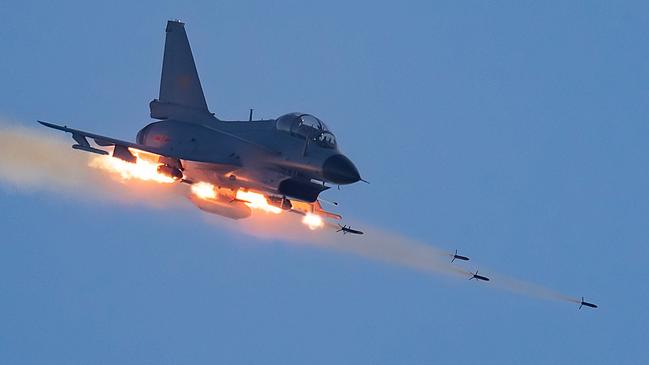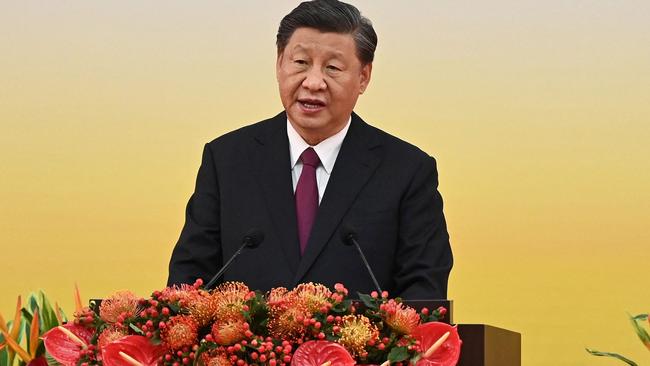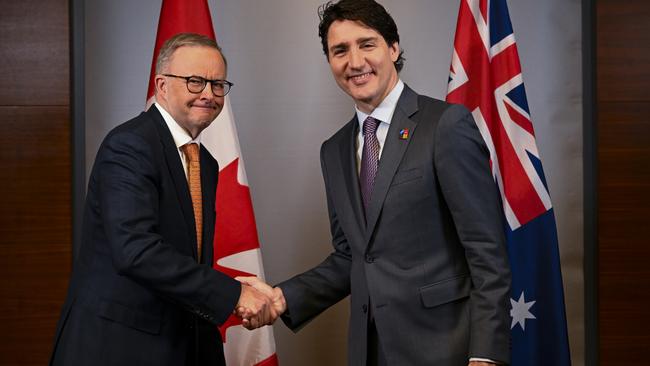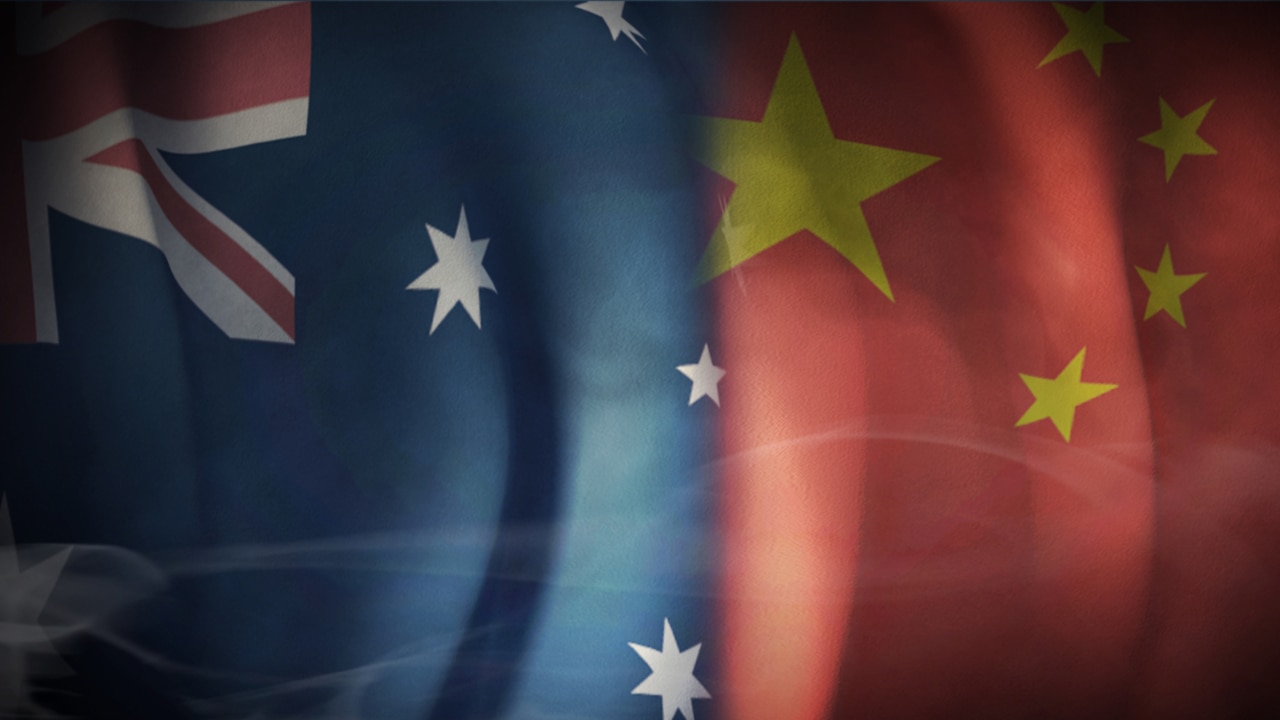Beijing issues stark warning to Australia over South China Sea
China has delivered an extraordinary warning over any military accident between the two nations in disputed seas.

Beijing has warned Australia will “bear the consequences” of any military accident between Chinese and Australian forces operating in disputed areas in the South China Sea.
China’s defence ministry said Canberra had been involved in “risky and provocative” behaviour by flying an Australian surveillance plane near the Paracel Islands in the first week of the Albanese government.
Canada, which last month complained about dangerous encounters with People’s Liberation Army fighter jets, was also scolded in a joint dressing down on Thursday night.
“Whenever they come, [the PLA] will counteract,” said Senior Colonel Tan Kefei in Beijing. “Those who come uninvited shall bear the consequences.”
Hours earlier Anthony Albanese had his first meeting as Prime Minister with Canadian counterpart Justin Trudeau on the sidelines of a NATO summit in Madrid.
On May 26, as the Prime Minister was returning from a meeting of the Quad in Tokyo, a Chinese J-16 fighter challenged an RAAF maritime surveillance plane in international airspace over the South China Sea, flying close to the Australian jet and firing flares and “chaff” countermeasures.
Canberra protested with Beijing over the incident. The disputed islands, which China calls Xisha, are claimed by China, Vietnam and Taiwan.
A spokeswoman for Defence Minister Richard Marles said on Friday that the government had already “made its position clear in respect of this matter”. “Additionally, the Deputy Prime Minister raised this with his counterpart in Singapore last month, and has outlined concerns with what took place.”

Canada’s aircraft have also been repeatedly harassed by PLA jets in recent months as they tried to carry out a surveillance mission to enforce UN sanctions on North Korea. Beijing said the Canadian planes, which had flown out of Japanese air bases, were undertaking reconnaissance of China “under the pretext of enforcing UN Security Council resolutions”.
“What is the duty of a soldier? That is to defend the homeland,” Colonel Tan said.
“No matter what the name or excuse is, it is completely unreasonable to send military planes to the door of others to provoke and jeopardise the national security of other countries. The armed forces of any country will not sit idly by, and the Chinese military is no exception.”
This week NATO’s members endorsed a new 10-year strategic road map that identified China for the first time as a strategic “challenge” to the alliance’s “interests, security and values”.
Australia is not a NATO member, but was invited to the summit with Japan, South Korea and New Zealand, as the Atlantic military alliance becomes increasingly concerned about China’s threats of war against Taiwan after Russia’s invasion of Ukraine.
NATO secretary-general Jens Stoltenberg said China was “not our adversary”, but warned NATO “must be clear-eyed about the challenges it represents”.


“China is substantially building up its military forces, including nuclear weapons, bullying its neighbours, threatening Taiwan … monitoring and controlling its own citizens through advanced technology, and spreading Russian lies and disinformation,” Mr Stoltenberg said.
Mr Albanese told the summit on Wednesday that China should take note of the consequences of Russia’s invasion of Ukraine.
“China must look at what is happening and look at the resolve from throughout the world and should be condemning Russia’s actions,” he said.








To join the conversation, please log in. Don't have an account? Register
Join the conversation, you are commenting as Logout